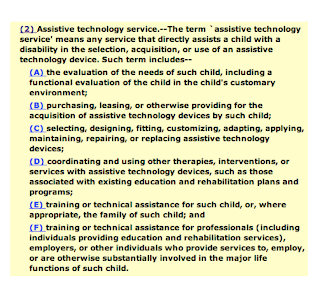Some Joy quotes from the evening....
- "An attitude about creativity and possibility can do wonders"
- "Assistive Technology can be a barrier if to cumbersome."
- "AT doesn't eliminate the need for instruction in social and academic skills."
- "Don't talk about the tools until you have talked about who is going to use them, where they are going to use them and what you are using them for."
















